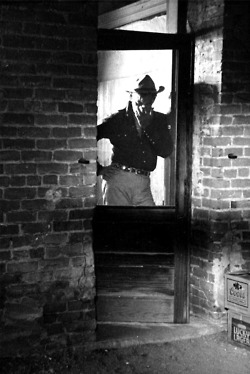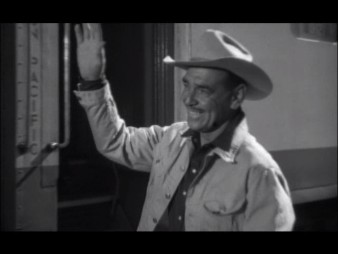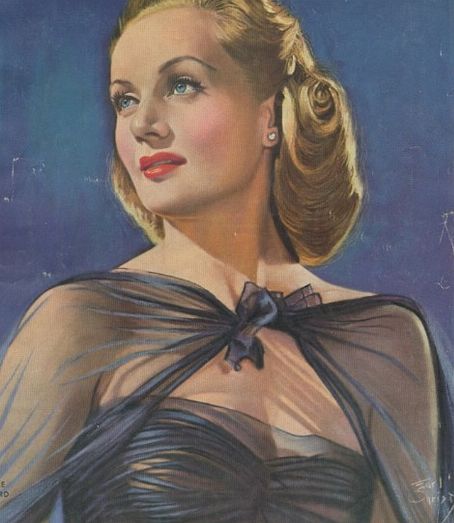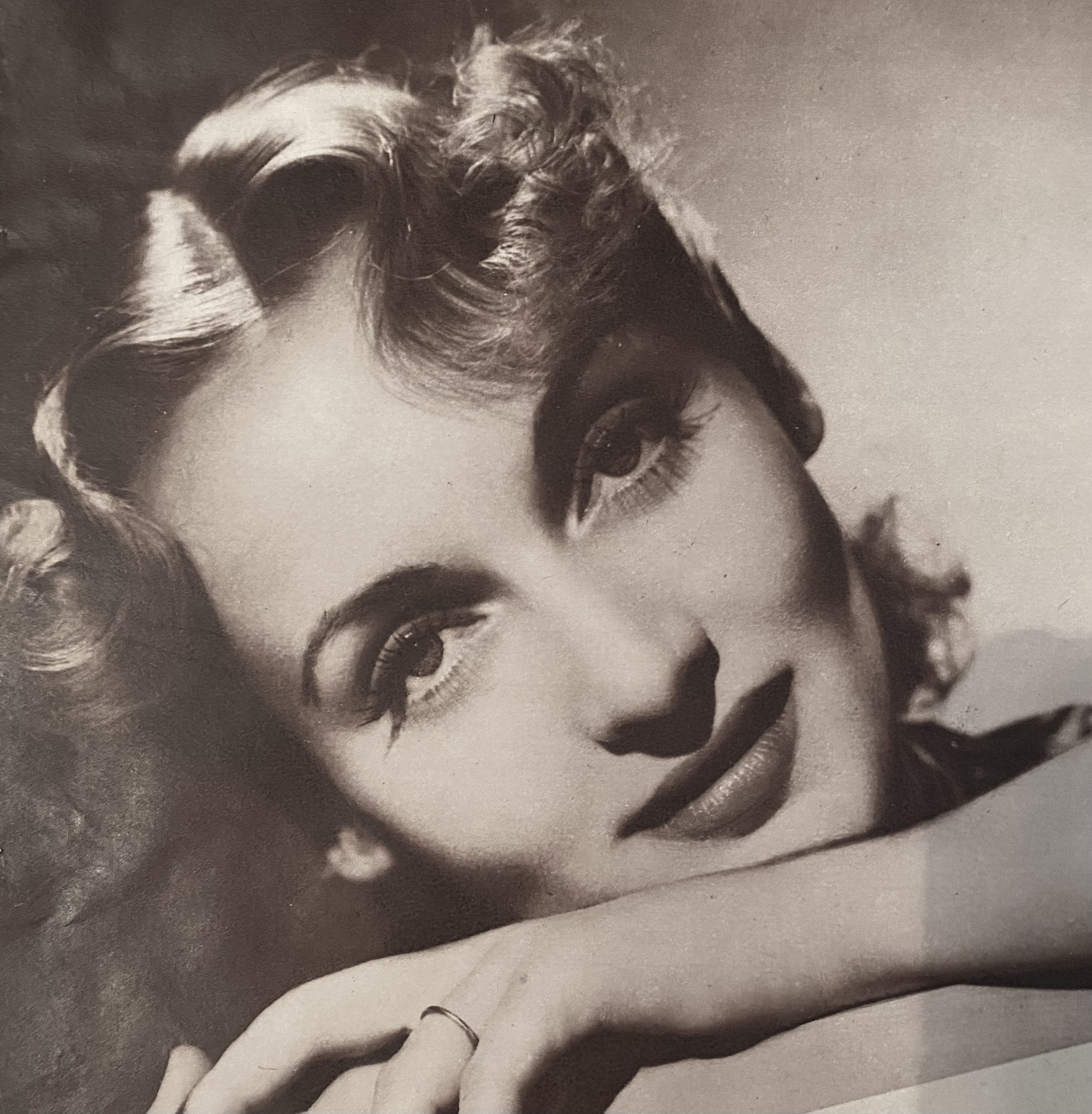Goodbye, Mr. Gable
Clark Gable died 54 years ago today, on November 16, 1960. He was 59 years old.

Here is the description of his final ten days on earth, detailed by his widow, Kay.
The last day Clark spent in the house he loved began much as any other day on the ranch, except that it was raining. It was Saturday, Nov. 5, 1960. The night before, Pa had finally finished all work on The Misfits and he came home looking so worn out my heart ached for him. He talked of flying up to the duck club near Stockton for the weekend, but changed his mind.
Saturday morning he looked more rested. We had breakfast. Then later in the day Pa took his hunting dog out to one of our back fields and worked him. He was pleased with the dog’s performance and we talked about future hunting trips. Pa played with Joan and Bunker for awhile, then he seemed quite tired and restless–so unlike him. I said, “Come on Pa, you had better get a good night’s rest, so off to bed.”
About 4 a.m. Clark awakened with a bad headache. I have him some aspirin and he dozed fitfully. There was a terrific thunder and lightning storm–a rare occurrence in California–and it vaguely disturbed me. I was concerned about Pa and it was some time before I went back to sleep. At 8 a.m., I woke to find Clark standing in the doorway. He has started to put on a pair of his favorite khakis but he had been unable to finish dressing. His face was grey and beaded with perspiration.
“Ma, I have a terrible pain,” he said, “It must be indigestion.”
I was frightened by his appearance but I tried to keep my voice calm so I helped him to a chair. “I’m calling a doctor,” I said. “No, don’t,” Pa protested. “This will go away in a while. I don’t need a doctor.” I looked at Clark sitting there helplessly, then I reached for the phone. As I dialed I said, “I’ve never disobeyed you, Pa. But this time I’m sorry, you must have a doctor.”
When the doctor arrived, he took one look at Clark and immediately put in a call for an ambulance and a fire department rescue unit. “Is it a coronary?” I whispered. The doctor said he thought it was.
It was so like Clark to be more concerned about me than himself, even though he was in great pain. He protested my riding in the ambulance with him; he was afraid it might prove too upsetting in my condition. (Kay was five months pregnant) Of course, I insisted on staying right beside him. As the attendants wheeled him out, Pa looked up at me and said, “I feel terrible, Ma, doing this to you.” I gave Pa a reassuring smile as the ambulance headed out our drive, past his beloved oleander trees.
For the next ten days I rarely left Clark’s beside. At first, I slept in a little cot at the foot of his bed. But his small room soon became crowded with medical equipment and the two nurses we used on each shift, so the doctor thought it best I move to an adjoining room.
It was a great shock for me to see Clark in a hospital bed. He had always been so vital, so strong, so full of life. He was never ill and previous checkups had shown nothing wrong with his heart. Though he suffered great pain at the time of his attack, Clark never complained. He was a good patient and determined he’d get well. …
From the start, Clark insisted on knowing the truth about his condition. “I want to know just how bad it is,” he told the heart specialist. “I want to know how much damage there’s been and how active I can be in the future. Just give me the plain facts; don’t varnish them. I can handle it.” Pa’s courage never deserted him.
Clark was told that once he was out of the hospital he would face a long period of rest. After that he could gradually resume his normal activities. Each day he seemed a little better; he even felt well enough to read five of the twenty books I’d brought him from Hunter’s book store in Beverly Hills. I also brought in two little elbow pillows so he could read more comfortably. Clark looked at me over the top of his reading glasses. “Come on, old lady,” he protested. “Let’s not overdo this. I’m not quite that fragile.” We both laughed, but I noticed he enjoyed the pillows all the same. …
After Clark’s attack, the doctors explained the tenth day was generally the critical one for a coronary patient. I recall one of them saying, “If we get through the tenth day, all is well.” So I counted and I prayed. …
[On] Wednesday, November 16, we all felt encouraged. I brought in some of the letters and telegrams which had been arriving by the hundreds each day. Each afternoon I’d select a small number for Clark to read.“Here’s one from an old girl friend of yours in Paris,” I said, handing him a sealed envelope. “See, I didn’t even open it.” Clark flashed me that characteristic grin. “Where are you hiding the rest?” he teased.
I sat next to Pa’s bed, watching his reflection in the mirror. I had never seen him look so handsome, so serene, in all the years I had known him. It was almost miraculous, I thought. The marks of his illness–the lines, the strain and the pallor–were gone. Clark looked twenty years younger and his expression was strangely peaceful. I’ve heard it said the flame burns brightest just before it sputters out. But this never crossed my mind as I sat bathed in Clark’s wonderful glow.
Later, Rufus Martin, our devoted houseman, who had been with Clark over twenty years, stopped in a for a brief visit. He, too, was encouraged and left smiling. “I won’t worry about Mr. Gable any more,” he said.
Pa and I had a nice little dinner together and we commented on what a lovely day it had been. At 10 minutes past 10 p.m., I felt an angina attack coming on. I couldn’t understand it; I hadn’t had one for nearly two years. I didn’t want Clark to worry, so I quickly made an excuse to leave the room. I kissed him and gave him a tender hug saying, “Sweetheart, I’ll be back after the nurses get you ready for the night. Then we’ll drink our buttermilk together and I love you.” They were the last words I spoke to my husband.
Over and over I have said to myself, “Oh, if only I hadn’t left the room.” But at least I know that it was over in a split second. The doctors assured me Clark suffered no pain–he didn’t know he was dying. The nurse said he simply closed his eyes, his head fell back on the pillow and he was gone. It happened at 10:50 o’clock.
I had dozed off after going to my room and was awakened by the doctor and a nurse. “Clark has taken a turn for the worse,” I thought I heard the doctor say. It was like a nightmare. The nurse seemed to be crying. I started to get up, then blacked out. In a few seconds I recovered. The doctor was rubbing my wrists. “What did you say?” I cried. This time I heard him clearly. “Clark has passed on.”
“Let me go to him,” I said, pushing myself up from the bed. “No,” pleaded the doctor. “It’s better for you to stay here.” I reached for my robe. Nothing on this earth could have stopped me from going to Pa. I motioned the doctor and his sedatives aside and I went. …
They had told me he was gone. But, of course, I tried to hold on to him. Heartstricken, I wouldn’t let go. For two hours I held him in my arms.
Finally I did what my husband would have expected me to do–I faced up to it. Pa was gone. I touched his cold face with my hand, in a last farewell, and I walked out of the room. As I reached the door I told myself I must not look back. I did not.

You can read more about Clark’s death and funeral and see his will here.



One Comment
Shannon
Can you tell me where to find a book with most of these historic entries in it? I think it’s very fascinating material and I’d like a copy.